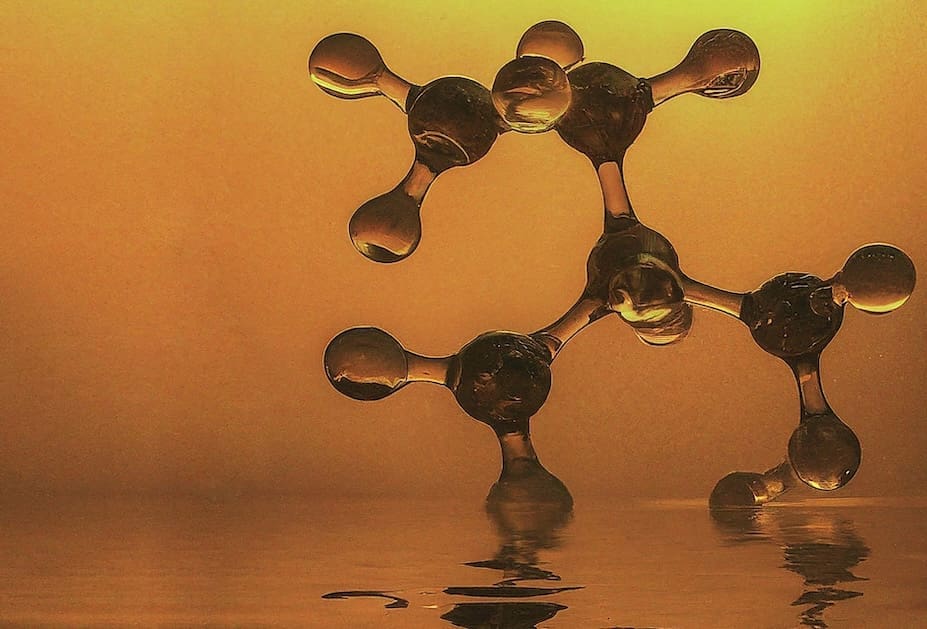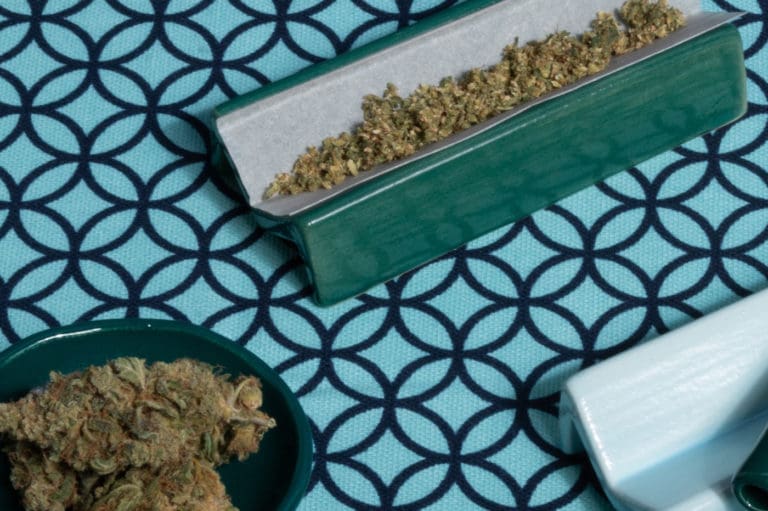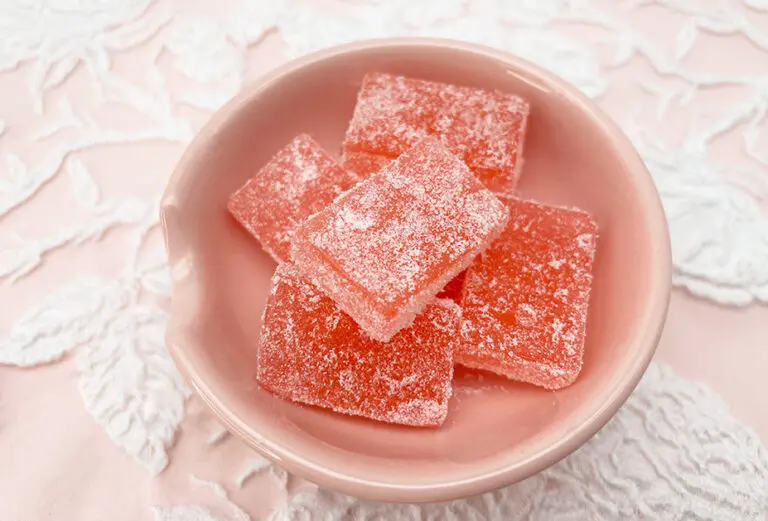Understanding Delta 9 and Delta 8: Your Guide to Hemp-Derived Cannabinoids
- Hemp-derived cannabinoids like Delta 9 and Delta 8 are everywhere lately.
- That’s because hemp-derived THC is federally legal in the US, and it can get you high.
- Here’s everything you need to know about how hemp works, including the differences between Delta 8, Delta 9, and other hemp-derived cannabinoids.
10-minute read
Feeling Alive with the Hemp-Derived
Get comfortable because we’re digging into the world of Delta 9 THC and all the other hemp-derived products. We know. That sentence might sound like another language to the uninitiated. But don’t worry. By the time you’re done reading, you’ll be fully fluent in hemp-derived cannabinoids. And that’s a good thing because they’re all the rage lately. Why? Because they’re federally legal, you can buy them almost anywhere, including online. And, yes, they can get you high.
Hemp-Derived Products, like Delta 9, are Taking Over
You’ve probably seen hemp-derived products online, at the gas station, or your local bodega. They tout Delta 8, Delta 9, Delta 10, Delta 11, THCA, and myriad other often-suspect substances. That’s because, due to a legal loophole, hemp-derived products are federally legal right now. But (and that’s a BIG but), some states have specifically outlawed certain hemp-derived products, especially Delta 8. In order to stay on the right side of the law, check this hemp-derived THC legality map to see if they’re legal in your state. If they are, even if your state doesn’t allow dispensaries, you can still buy hemp-derived products almost anywhere.
Should You Try Hemp-Derived Products Like Delta 9?
Of course, the convenience of buying your cannabis online or at a mainstream retailer is incredibly tempting. And there are some fantastic hemp products out there. But, because hemp is largely unregulated, some are downright dangerous. So, you’ll want to be careful about which ones you buy. This one’s important, so let’s dive in.
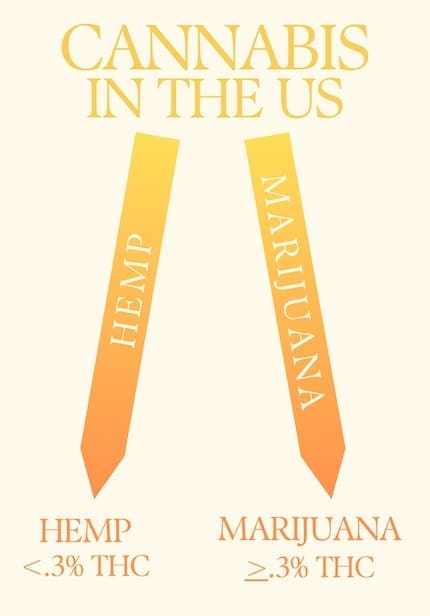
What the Hemp?!
Before we get into the nitty gritty of Delta 9 and other hemp-derived cannabinoids, you need to know the difference between hemp and marijuana. You may not know this, but both are types of cannabis. They’re actually just different types of the same plant. The difference between them isn’t really about the plant itself. It’s just a legal distinction that the US government made. So, they’re both cannabis, and they both contain naturally-occuring Delta 9 THC—the thing that will get you high. They also both include other cannabinoids that generally don’t get you high, like CBD. In fact, the CBD industry is largely why the US legalized hemp in the 2018 Farm Bill.
How Can Hemp Be Legal?
US law defines hemp as cannabis plants that include less than 0.3% THC, and it defines marijuana as cannabis plants that include 0.3% THC or more. It’s as simple as that. And, yes, that’s a completely arbitrary distinction. But, using those definitions, the US fully legalized hemp back in 2018. That made any non-intoxicating cannabinoids legal to consume. It also means that anything that’s strictly made from hemp is legal, too, including THC. So, while marijuana is still fully illegal in some states—some in which it’s even still illegal for medical purposes—all hemp products are federally legal right now. Still, that doesn’t mean they’re all created equal.
Do All Hemp Products Get You High?
Did you know that not all hemp products are intoxicating? Many of them provide value to you in ways other than getting you high. Hemp’s been used for centuries to make durable rope and textiles, noted for their strength and sustainability. These days, hemp fibers are still woven into clothing, offering a natural alternative to synthetic materials. You can also find hemp in a wide range of non-intoxicating wellness products like nourishing bath oils, soothing lotions, and health-boosting supplements. But that also means that, if you want it to be intoxicating, you need to be careful about which hemp you buy. Because not all of it will get you high.
Let’s Talk Testing
The beauty of buying cannabis at legal dispensaries is that you know it’s been rigorously tested for any harmful contaminants—like fungus, bacteria, pesticides, or heavy metals. AKA all the gross stuff you don’t want to put in your body. That’s especially important with cannabis because it’s absolutely great at drawing nasty stuff out of the soil. In fact, we plant it at toxic waste sites to help clean them up. But many hemp products are lab-tested. So, when you’re buying, look for QR codes linking to certificates of analysis—(COAs). COAs show you whether the product contains contaminants. They also mean that the company cares about testing their products to make sure they’re ok to put in your body.
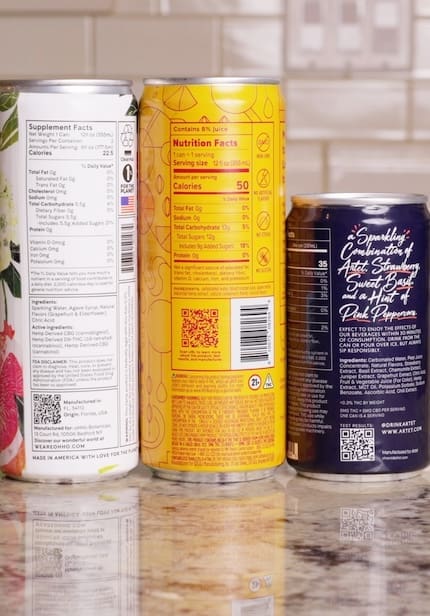
The Cannabasics
So, what the heck even is a cannabinoid? Cannabinoids—like THC and CBD—are chemical compounds found in the cannabis plant. They all interact with receptors in our body’s endocannabinoid system. The endocannabinoid system plays an important role in controlling tons of bodily functions like your mood, appetite, pain, and memory. Basically, cannabinoids act as messengers, sending signals to different parts of your body to keep everything nice and balanced.
Can We Talk About Hemp-Derived THC?
The different types of hemp-derived THC are split into 2 main groups. One is hemp flower for inhalation. The other is hemp that’s processed into sublinguals and edibles.
THCA—The Stuff Before the High
THCA is the non-intoxicating cannabinoid in all flower that turns into Delta 9 THC. When you buy any flower, it only contains THCA, which doesn’t get you high. Then, when you smoke, vape, cook, or bake it, the heat transforms THCA into Delta 9—the stuff that does get you high. That’s why munching on raw cannabis or hemp flower won’t give you a buzz. But, because hemp is defined by its low percentage of THC, hemp-derived THCA is naturally super weak. So if you’re trying out hemp-derived THCA and it feels as strong as the products you get from your dispensary, there’s a good chance it’s not legal.
Making Sense of Hemp-Derived
Then, there’s 2 ways of processing hemp into THC products. What’s the difference? That comes down to how they’re produced. The first is to just extract a truckload of the naturally-occurring Delta 9 from hemp plants and concentrate it. Spoiler Alert: hemp-derived Delta 9 is our go to! The other method is to take other naturally-occurring cannabinoids in hemp (like CBD) and use a truckload of really harsh chemicals to synthetically transform them into THC. Needless to say, our POV is “just say no” to putting anything processed with nasty chemicals into your body.
Delta 9 THC—It’s All Natural, Baby
Delta 9 (or ∆9) naturally exists in all cannabis, including hemp. By the US government’s definition, though, in hemp it’s just in lower concentrations than it is in cannabis. So, you can extract THC from hemp the same way you do from all other cannabis. But you have to process a lot more hemp to get enough Delta 9 (e.g., hemp-derived Delta 9 or HDD9) to get high. So, hemp-derived Delta 9 is more expensive to produce. Plus, to be legal, hemp-derived products have to stay at lower potencies (by dry weight) than you could buy in a dispensary. However, unless you need incredibly high doses, you can still buy legal hemp-derived with enough THC in them to get the high you want.
A Little More on Delta 9
The long and short of hemp-derived Delta 9 is that, functionally, there’s no difference between it and the THC that’s sourced from cannabis. It’s just been concentrated from more hemp plants than it would take to make it from the cannabis that the US government defines as marijuana. So, the legal status of Delta 9 THC varies depending on its source. That’s why hemp-derived Delta 9 is legal in places where marijuana-derived Delta 9 remains illegal.
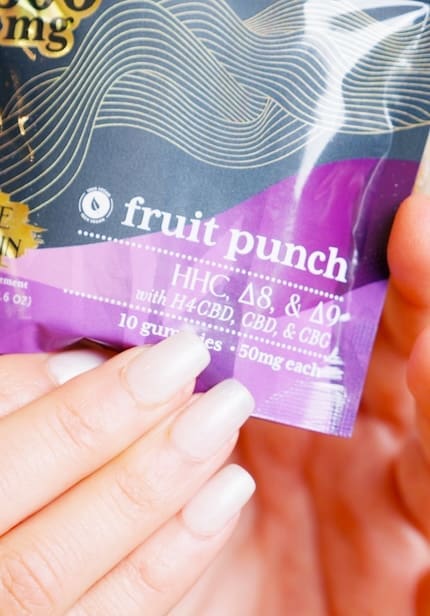
The Synthetic Stuff
Then, there’s synthetic THC. This is the cheaper way to go for the companies that create it. They largely make synthetic THC from hemp-derived CBD and Delta 9. But how does that even work? A whole lotta science. To keep it simple, synthetic cannabinoids are physically very similar to Delta 9 and CBD. So, processors can use a mix of solvents and other chemicals to transform the structure of CBD or Delta 9 to make something entirely new. Think of it like a home renovation where you turn the unused coat closet into a panty. Move the door, remove the closet rod, add some shelves, and now you’ve got something vaguely familiar, but totally new.
Delta 8
If you’ve been even a tiny bit tuned into the world of cannabis the last few years, you’ve probably heard the term Delta 8 THC, D8, or ∆8. It’s definitely the most popular type of synthetic THC on the market right now. Delta 8 is known for producing a more mild high than its cousin, Delta 9, and for its relaxing, sleepy effect. Most users report a sedative, body high. It can be found in both hemp and cannabis plants. But, unlike Delta 9, D8 only occurs naturally in very small amounts. So small, in fact, that virtually all of the D8 being sold right now is produced synthetically from those hemp-derived CBD or Delta 9 molecules.
Delta 10 and Delta 11
Delta 10 THC (∆10) and Delta 11 THC (∆11) are lesser known synthetic cannabinoids that have also been gaining popularity lately. Delta 10 is generally the most mild of the synthetic cannabinoids. It’s known for its mild, energizing high that enhances creativity and focus. Delta 11 THC, while less well-studied, produces a more potent and euphoric high similar to Delta 9. Unfortunately, both come with some significant potential health risks, including exposure to harmful solvents and contaminants during production. This emphasizes the need for thorough lab testing and reputable sourcing to ensure your safety.
The Sour of Synthetics
Synthetic THC, in all its forms, is only created through the use of really harsh hydrocarbons—those are chemicals made from petroleum and natural gas. If you’re concerned about your health, you definitely don’t want to ingest those. Synthetic cannabinoids are generally cheaper than Delta 9, and they will get you high to varying degrees. But they could cost you big in other ways.
The Inconvenient Truth
The harsh chemicals required for the transformation of other cannabinoids into THC can leave behind traces of petrochemicals like butane and heptane. Exposure to petrochemicals can cause cancer, cardiovascular disease, and infertility. Oh, and death. In fact, while there are literally no overdose deaths linked to natural cannabis, there are multiple deaths related to synthetic cannabinoids every year. For a harrowing deep dive on just how nasty they can be, check out Wikipedia’s page on synthetic cannabinoids.
Cannabis with a Side of Rat Poison
Lab testing of synthetic cannabinoid products has also revealed some scary additives and contaminants. These substances, often found in hemp products marketed as legal alternatives to marijuana, can include harmful chemicals like acetone, benzene, and heavy metals. Some synthetic cannabinoids have also been found to contain residues of solvents used in the manufacturing process, like butane and heptane. Both chemicals are petroleum products and can be toxic. Lab tests have also uncovered synthetic cannabinoids laced with other dangerous substances, like rat poison and synthetic opioids—not exactly the kind of stuff you want in your body. These contaminants not only undermine the safety and quality of the products but also pose significant health risks to consumers.
The Legal Crackdown
Even more troubling, when you transform other cannabinoids into THC, you create new, unknown molecules. That’s right. The processing of hemp into synthetic THC products—including Delta 8, 10, and 11—creates brand new molecules that we don’t know anything about yet. So, we have no way of even knowing whether they’re harmful to us or not. We don’t know about you, but we’re certainly not volunteering ourselves to be guinea pigs for testing out new molecules. The growing popularity of hemp-derived products is really exciting. But, because of the health risks, the legal landscape is changing. More and more states are beginning to crack down on synthetic cannabinoids to protect public health.
The Final Hit
As we venture deeper into the world of hemp-derived products, it’s clear that not all cannabinoids are created equal. Naturally-occurring hemp-derived Delta 9 stands out as a fantastic option, offering a safe, legal way to enjoy the benefits of THC almost nationwide. While many synthetic alternatives are also legal, there’s a lot we don’t know about them and they can pose significant health risks. Ultimately, the goal is to feel alive and vibrant, not to compromise your health for a high.
